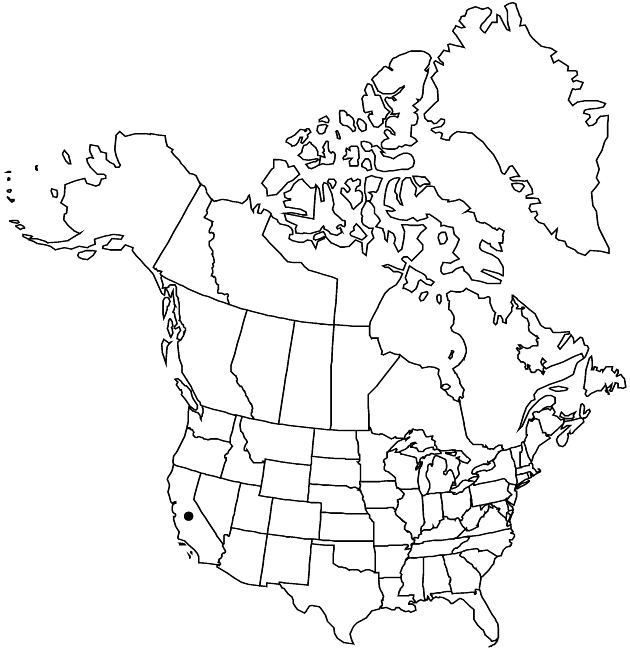Deinandra mohavensis
Novon 9: 469. 1999.
Annuals, 10–100 (–150) cm. Stems solid. Leaves: proximal blades usually entire, sometimes serrate, faces pubescent and stipitate-glandular. Heads usually in glomerules or ± crowded, sometimes in open, paniculiform arrays. Bracts subtending heads usually overlapping proximal 0–1/2+ of each involucre. Phyllaries ± evenly stipitate-glandular, including margins and apices, usually with nonglandular, non-pustule-based hairs as well. Paleae in 1 series. Ray-florets 5; laminae deep yellow, 4–7 mm. Disc-florets 6, functionally staminate or bisexual; anthers yellow or brownish. Pappi of 5–9 (often ± connate, irregular), subulate to quadrate, erose scales 0.1–0.6 mm. 2n = 22.
Phenology: Flowering (May–)Jul–Oct(–Jan).
Habitat: Edges of streams, springs, seeps, in swales, in openings on drier surrounding slopes of chaparral, desert scrub, or woodlands, clayey, silty, or gravelly soils
Elevation: 800–1600 m
Discussion
Of conservation concern.
Deinandra mohavensis is known from the Peninsular Ranges (San Jacinto Mountains, Palomar Mountains, Anza Bench) and southernmost Sierra Nevada (Short Canyon, Jawbone Canyon region), and San Bernardino Mountains (where possibly extirpated). As noted by A. C. Sanders et al. (1997), D. mohavensis occurs in unusually mesic habitats for Deinandra (somewhat similar to situations where D. arida and D. floribunda occur) and has a highly disjunct distribution. It is in the Center for Plant Conservation’s National Collection of Endangered Plants.
Selected References
None.
